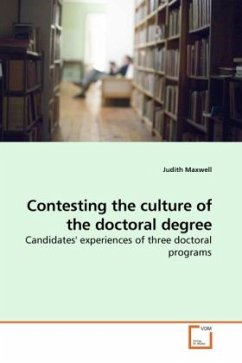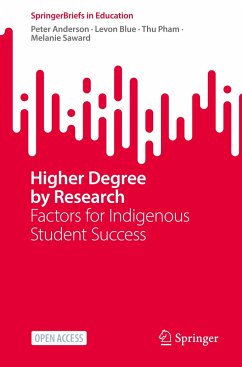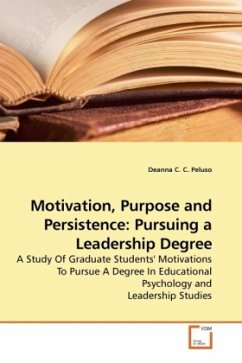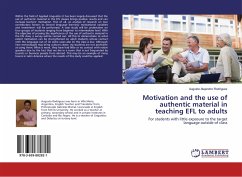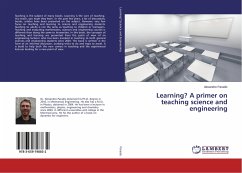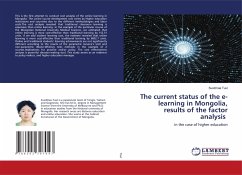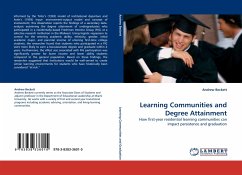
Learning Communities and Degree Attainment
How first-year residential learning communities can impact persistence and graduation
Versandkostenfrei!
Versandfertig in 6-10 Tagen
32,99 €
inkl. MwSt.

PAYBACK Punkte
16 °P sammeln!
Informed by the Tinto s (1993) model of institutional departure and Astin s (1993) input- environment-output model and concept of involvement, this dissertation reports the findings of a secondary data-analysis examining the degree attainment of undergraduates who participated in a residentially-based Freshman Interest Group (FIG) at a selective research institution in the Midwest. Using logistic regression to control for the entering academic ability, ethnicity, gender, initial academic major, and parental income of entering first-time college students, the researcher found that students who ...
Informed by the Tinto s (1993) model of institutional departure and Astin s (1993) input- environment-output model and concept of involvement, this dissertation reports the findings of a secondary data-analysis examining the degree attainment of undergraduates who participated in a residentially-based Freshman Interest Group (FIG) at a selective research institution in the Midwest. Using logistic regression to control for the entering academic ability, ethnicity, gender, initial academic major, and parental income of entering first-time college students, the researcher found that students who participated in a FIG were more likely to earn a baccalaureate degree and graduate within 4 years. Furthermore, the effect size associated with FIG participation was significantly greater for lower income and lower ability students compared to the general population. Based on these findings, the researcher suggested that institutions would be well-served to create similar learning environments for students who have historically been considered at-risk.






